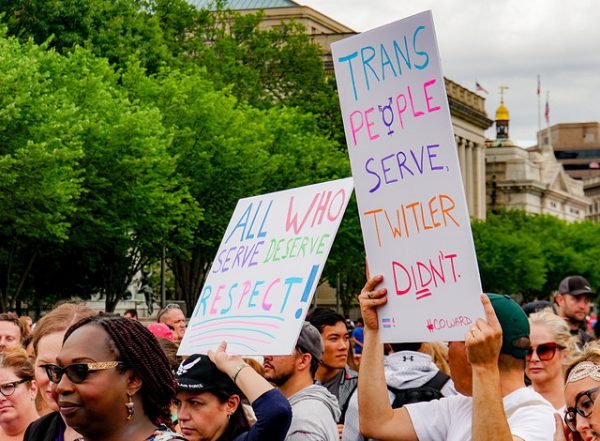
In 2016, the Obama administration began to allow transgender military personnel to openly affirm their gender identity without fear of being separated, discharged, or denied reenlistment. Recently, however, President Trump and the United States Supreme Court instituted a ban on openly transgender personnel serving in the military. Among these are troops that have multiple deployments, extensive combat experience, and are highly decorated. Though President Trump asserted that transgender personnel affect military readiness, top military leaders did not support this determination. Additionally, projected healthcare costs for these personnel — another reason stated by Trump for the ban — have been found to be minimal, given the small size of this population. Sociological research sheds light on troops’ attitudes towards transgender personnel, and addresses misconceptions about the effects of transgender personnel on military readiness.
One study at a premier military academy revealed that most concerns about the integration of transgender personnel in the military included items such as privacy (bathrooms, showers, living arrangements), how to gauge male and female physical fitness standards for transgender personnel, and costs of hormones or surgeries for transitioning soldiers. Another study suggests that overall, cadets (both ROTC and military academy) and civilian undergraduates do not believe working with transgender people would affect their ability to do their jobs. However, nearly half of academy cadets agree with barring transgender people from military service, while smaller percentages of undergraduates and ROTC cadets hold this opinion.
- Morten G. Ender, David E. Rohall, and Michael D. Matthews. 2016. “Cadet and Civilian Undergraduate Attitudes toward Transgender People: A Research Note.” Armed Forces and Society 42(2): 427-435.
- Morten G. Ender, Diane M. Ryan, Danielle A. Nuszkowski, Emma Sarah Spell, and Charles B. Atkins. 2017. “Dinner and a Conversation: Transgender Integration at West Point and Beyond.” Social Sciences 6(1): 1-18.
In another study, survey responses of active and veteran military students revealed relative support for transgender men and women in the military. Both deployment to a combat zone and being in an infantry combat position led to supportive attitudes towards transgender military personnel. However, a noteworthy number of participants also expressed stark bias and prejudice towards transgender individuals in the military.
- Meredith G. F. Worthen. 2018. “Transgender Under Fire: Hetero-cis-normativity and Military Students’ Attitudes Toward Trans Issues and Trans Service Members Post DADT.” Sexuality Research and Social Policy: 1-20

Comments